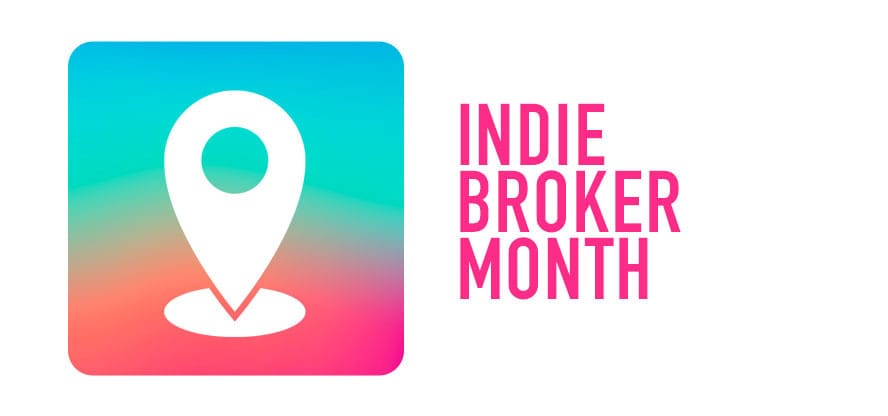 It’s never been a more interesting or exacting time to be an indie broker. In November, Inman celebrates the indie by narrowing in on what growth tactics are working best and what tech is emerging that offers the best competitive advantage.
It’s never been a more interesting or exacting time to be an indie broker. In November, Inman celebrates the indie by narrowing in on what growth tactics are working best and what tech is emerging that offers the best competitive advantage.
Opening your brokerage means working for yourself. You can set your own schedule and come and go as you please. Opening an indie brokerage allows you the freedom to chart your own course and set your own rules — creating your brand and building everything from scratch, as you wish. These are the stories we tell ourselves as we set out to open an office, but here’s the real truth:
1. Service above self
You might be the broker in charge, but you still work for others. You work for your clients to serve their real estate needs, first and foremost. You also work for your agents and staff to guide them in their careers and help them achieve their goals. You serve others first, which in the end leads to success for you and your brokerage.
2. You have to show up
Yes, you can set your own schedule — to a point. You can come in late on some days and leave early on others, but coming and going as you please will confuse staff and agents.
You still need a schedule and to communicate to everyone when you will (or will not) be available. Being the invisible broker leads to office problems, including communication issues, damaging morale and a feeling that nobody is steering the ship.
On countless Facebook groups, we see agents online asking questions — legal questions on contracts or other serious questions about handling transactions. These are questions they should be asking their broker, but when this is pointed out, many reply that they did ask their broker but could not find him or her. Or they say that they don’t want to bother the broker.
It’s up to you to let them know you are accessible — by phone, in person or video chat — and not MIA when they need you. If you don’t want to see your agents crowdsourcing answers on Facebook, be there for them.
3. You will work hard
You don’t have to be chained to your desk 24/7, but staff and agents need to know you are not sitting by the pool drinking margaritas all day. With COVID-19 and more work-from-home time, brokers might be spending time in their home office.
Communicating throughout the day on Slack channels or private Facebook groups and letting the group know when you are available for in-person meetings or cellphone calls will keep everyone on the same page.
Whether you have three agents or 300, you will work hard to build your brokerage and be there for your group. Work does not start at 9 a.m. and stop at 5 p.m. Agents will call you with problems on nights and weekends.
When a transaction is burning to the ground at 7 p.m., being available for a quick call might mean the difference between putting out the fire or watching it burn. You have to set boundaries and won’t always pick up the phone, but if you let the call go to voicemail too many times, your agents will get the feeling you are not there for them when they need it most.
4. Brand building is exhausting
At least, in the beginning, building a brand from scratch takes money and energy. At first, choosing colors and logos might be fun. But having to design everything from signs and business cards to web pages and buyer guides takes hours and hours. Once it’s done, of course, it’s done, but you will still need to tweak and update it occasionally.
One plus of the franchise system is the “business in a box” promise. Buy a franchise, and you won’t have to worry about many of these items. Click the link to order your signs, and call our preferred vendor to get your website going.
You might have to work hard in the beginning to introduce a new franchise to your region until it gains traction, but the design and build out aspects come with your franchise.
5. You’ll have a target on your back
Once you are successful and others take notice, you’ll have others who set out to take you down. Your positives — perhaps being a small boutique with high customer service levels and local presence — will be turned against you. Know your strengths, and promote them in your marketing. Also, know what your competition says about you when clients interview you.
Franchise brokers competing against you on listings will play up their referral network and ability to bring outside buyers in with the franchise name and say you don’t have the same national presence. They will use the power of the franchise name to put down your local strengths.
To compete with this approach, you could join an independent network such as Leading Real Estate Companies of the World (LeadingRE) and promote yourself as a global network member.
Do your due diligence to learn the competition’s talking points and address each issue one by one in your marketing.
6. You will sometimes fail
And sometimes, you will fail miserably. Nobody skates through life with no missteps, and no business owner makes the right decisions 100 percent of the time.
You might have failed in one project or one situation, but that does not mean you are a failure personally. Know that every failure has its lessons. Learn from those situations, dust yourself off, and move on.
Before you open your own indie brokerage, take a look at these harsh truths. Are you ready for the hard work and massive effort to get it up and running? Are you willing to deal with the naysayers and competition that will set out to marginalize your non-franchise office? I hope so.
It’s so worth the effort, and I would have it no other way. Indie brokers are a resilient and determined club — and I welcome you to the group.
Erica Ramus, MRE, is the broker/owner of RAMUS Real Estate. You can follow her on Twitter or LinkedIn.













